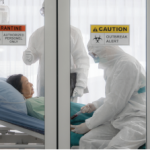The number of medications with rheumatologic indications has increased in parallel with expanding complexities of medication approval and delivery. Simply starting a patient on a biologic medication or new disease-modifying anti-rheumatic drug (DMARD) can be time consuming and frustrating for physicians, nurses and their support staff. In addition to educating the patient and obtaining prior…









